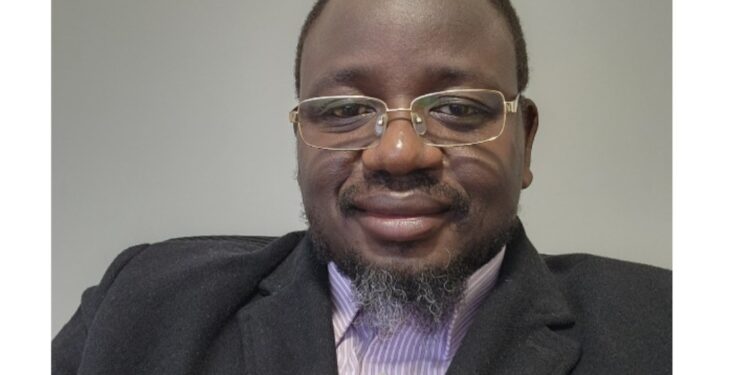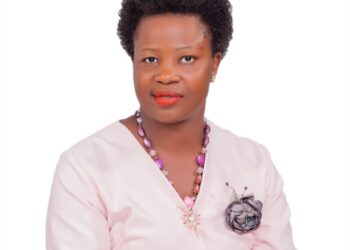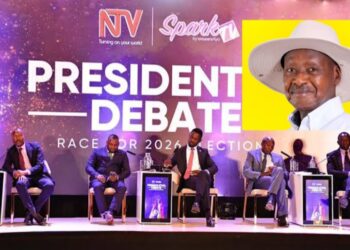By Dr. Samuel B. Ariong (PhD).
A recent article written by Mr Andrew Mwenda in his newspaper The Independent, (01 September 2025), and now making the rounds in Ugandan media and political circles presents a deeply misleading and perilous narrative: that Speaker Hon Anita Among allegedly used billions in cash to secure her victory over Hon Rebecca Kadaga for the ceremonial NRM position of deputy vice chairperson, is not only defensible—but a form of political genius. It is, allegedly, “democracy in action.”
Let’s be clear: this is not democracy. Andrew is bent on glorifying electoral corruption and effectively trying to tarnish Hon Anita Among well-deserved victory, dressed in philosophical quotes and intellectual spin to excuse a moral collapse.
The dangerous normalization of vote buying
Mr Mwenda seeks to normalize bribery by equating it with democratic campaign financing. He cites the American philosopher Will Durant, suggesting democracy is merely “rule by money,” and offers campaign statistics from the United States to argue that money is what wins elections everywhere.
But this argument is incomplete, false and deceptive. There’s a vast difference between legitimate campaign spending—on advertisements, logistics, and outreach—and the direct purchase of votes. What Mr Mwenda is alleging, Hon Anita Among to have done—disbursed 300,000 Uganda Shillings to 25,000 NRM delegates—is illegal under Ugandan law and indefensible under any serious conception of democratic ethics, and Mr Mwenda cannot provide evidence to substantiate the allegations. Did Mr Mwenda raise the same arguments once Hon Amama Mbabazi defeated Professor Bukenya and Hon Otafiire to become the Secretary General of the NRM party?
If anything, this comparison only insults functioning democracies by holding them up as shields for decaying political practices in most developing nations in the global South, and falsely trying to pair Hon Anita Among’s victory to it.
Weaponizing poverty for political gain
The article shamelessly glorifies and pontificates corruption and bribery by highlighting that Ugandans are poor and that the best way to win their support is through handouts, not ideas. This is not political genius—it is a text definition of exploitation. It’s a blatant manipulation of economic desperation, treating voters not as citizens with agency, but as commodities to be bought and sold, and Hon Anita Among is beyond these misleading narratives.
This reasoning is not simply morally hollow—it is dangerous, and misleading, it’s a pre-determined and well-orchestrated effort to stain Hon Anita Among’s well-deserved victory. It suggests that poor people cannot understand or value long-term political accountability. And yet across the country, countless Ugandans have repeatedly stood up to corruption, voted their conscience, and demanded better—even when offered money.
In Kumi district for example, since competitive politics was introduced in 1996, 95% of incumbent leaders are swept aside every five years! In Soroti Municipality (2006), the most resourced and popular politician, Hon Mike Mukula was effectively defeated by a little-known politician. The examples across the country are clearly evident – the NUP red wave of 2021, swept central region like a cyclone Katrina. It plainly shows the masses understand who should be voted every five years, and they do so actively, not as passive spectators, or desperate bystanders waiting for handouts.
Kadaga’s defeat is no vindication of the system
The article misrepresents Hon Rebecca Kadaga as a relic of the past, offering nothing but a stale record. But Hon Kadaga’s campaign, while not perfect, represented institutional memory, regional balance, and a more traditional form of political engagement. Her loss to Hon Anita Among is not only a mark of Hon Among’s brilliance—it is also evidence of how far the NRM’s internal democracy has moved on; organisational capacity, pinning the campaign on contemporary issues and more broadly Hon Anita Among promised an alternative, a better vision, and highlighted issues that resonated predominantly well with the thousands of the delegates.
The conclusion that “whoever has the money always wins” is not democracy, it is kleptocracy, and Mwenda is a student of Political Science, who understands this topic at best.
Misusing Museveni’s role as a justification
It’s telling that the author casually acknowledges President Museveni was the “decisive factor” in the race. If so, why even bother with an election? What this alleges is that power within the NRM is increasingly concentrated in the hands of one man, who now chooses loyal enforcers over experienced leaders. That Hon Anita Among now acts as Museveni’s parliamentary “subcontractor” for loyalty and vote control is not an achievement—this is the highest-level deception in our recent memory. Why congregate thousands of people (delegates) in Kololo only for the president to decide for them!
Although I do not have a personal acquaintance with the Hon. Anita Among, I have made several attempts over the past six months to secure a meeting with her office. My intention was to discuss the possibility of documenting her ideas and achievements within academic and development policy literature. Unfortunately, these efforts have not been successful, as I was informed that she has been extensively engaged in national travel in support of her campaign for the NEC position. Precisely, her victory should not be undermined after such elaborate campaigns across the country.
Don’t dress up decay in philosophical robes
The most insidious part of the article is the author’s smug call for readers to “suspend their moral tastes” and embrace political reality with detachment. But this isn’t realism—it’s resignation. It’s an invitation to stop caring about integrity, public service, or justice – it’s an invitation for millions of all of us to sit down, fold our hands and stop thinking or participate in the political development process of our country.
This isn’t analysis. It’s propaganda in a suit and tie.
Yes, the world is complex. Yes, democracy can be messy, with all its discontents. But that does not mean we should glorify the collapse of public morality, or romanticize a system where leadership is auctioned to the highest bidder. Democracy without ethics is just tyranny with a smiling face, and I do suggest we should not brand Uganda, our dear motherland into this perspective, or stain a new crop of rising leaders like Hon Anita Among.
Uganda deserves better
Ugandans are not naïve. They know what democracy is supposed to look like. They know that government is meant to serve, not exploit. And they know that their poverty should not be weaponized against them by politicians who treat every election as a payday. Hon Anita clearly understand this.
Simply take a visit to Bukedea district, and witness firsthand few of the poverty reduction initiatives that Hon Anita Among has spearheaded in the recent few years or have a quick look at the new book – yet to be published (Poverty Reduction and Socioeconomic Transformation of Bukedea – 2016-2025)
We must stop defending institutional decay as political pragmatism. We must stop praising and preaching bribery. We must stop tarnishing a well-deserved victory.
Uganda deserves better—and so do its people, and people like Hon Anita Among are boldly stepping up forward.
About the Author:
Dr. Samuel B. Ariong is a lecturer, researcher, and development policy scholar with a PhD. His work focuses on development, and poverty reduction, and he is a Model Farmer in rural Eastern Uganda.
Do you have a story in your community or an opinion to share with us: Email us at editorial@watchdoguganda.com














